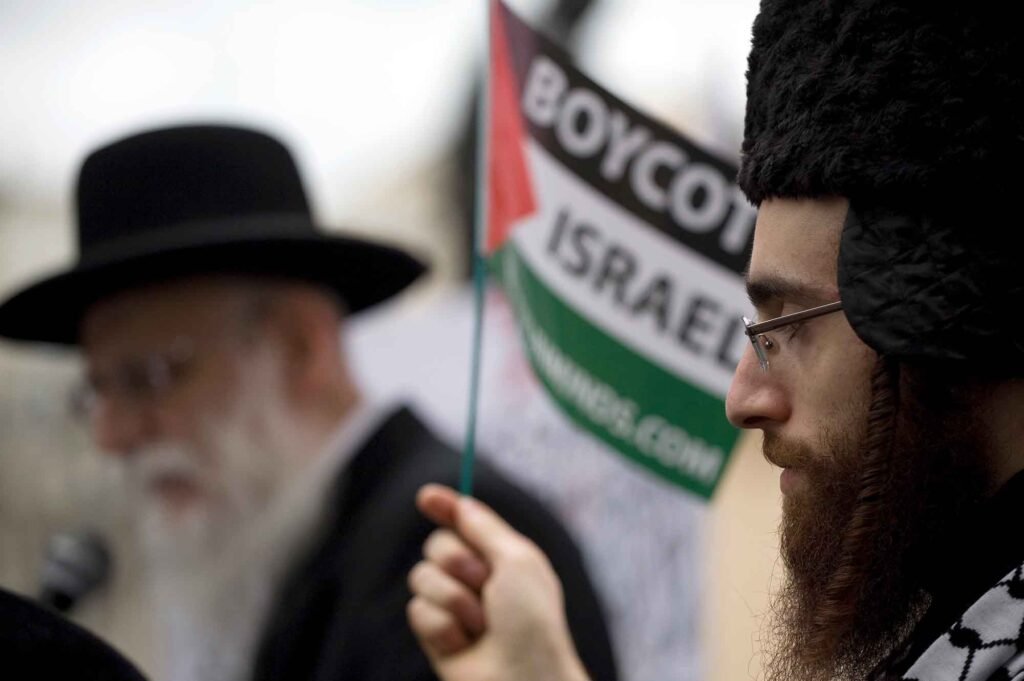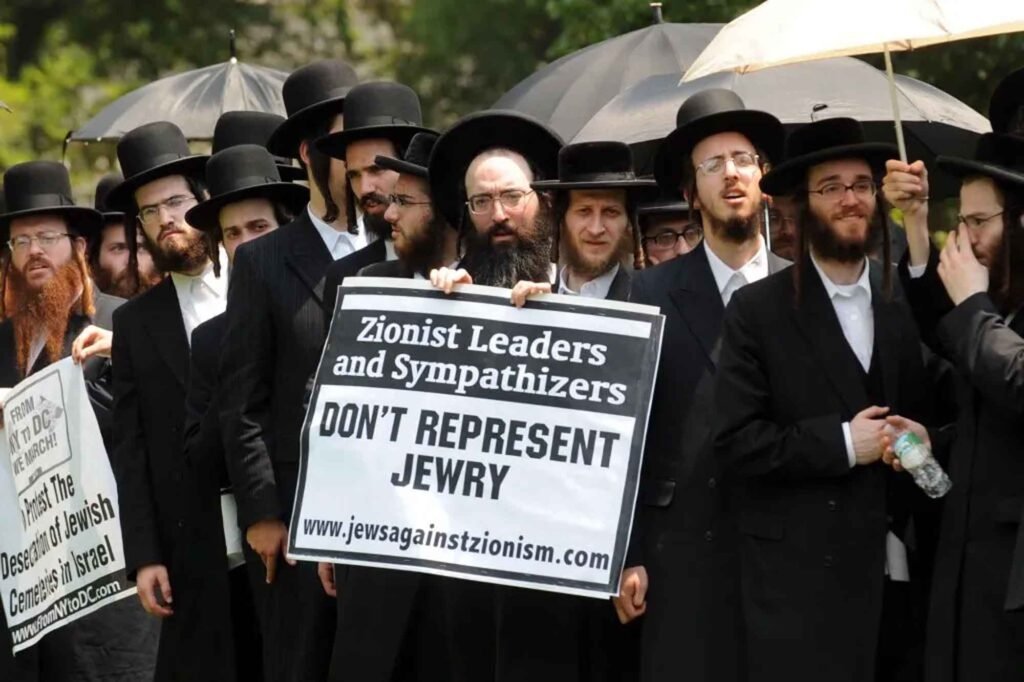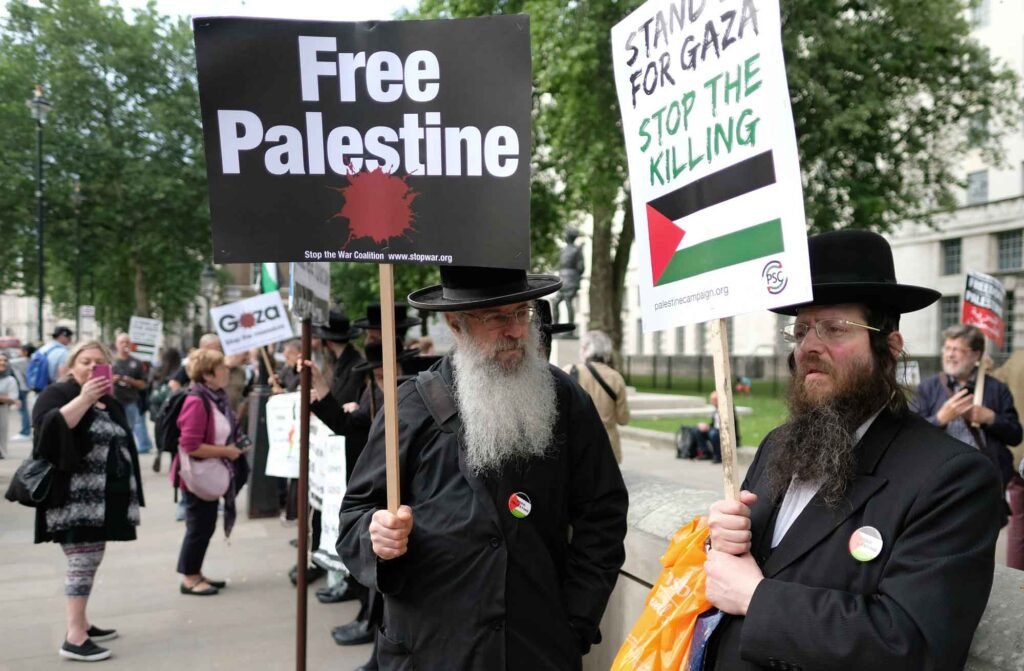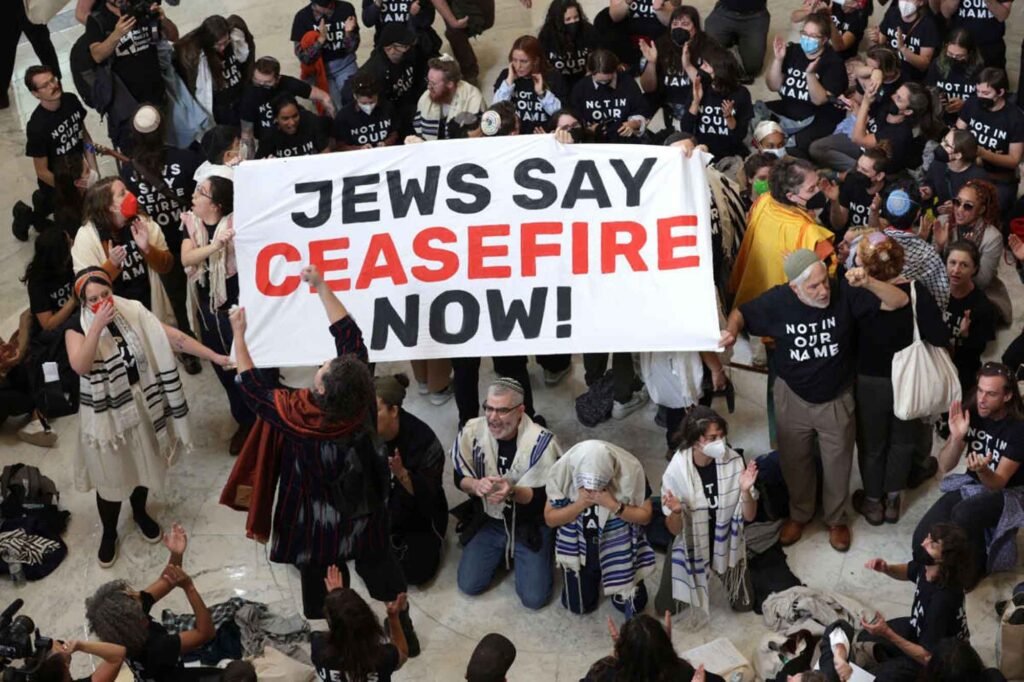The topic of anti-Zionist Jews might seem contradictory to some people. How can it be that Jews themselves oppose the creation of the state of Israel? What drives these individuals, and what do they have in common with each other? In this post, we will explore the diversity, origins, and motivations within this often misunderstood group.

Understanding Anti-Zionism
Before delving into the issue of anti-Zionist Jews, it’s essential to define Zionism and anti-Zionism. Zionism refers to a political movement that started in late 19th century Europe, calling for the establishment of a Jewish homeland in Palestine. Anti-Zionism, on the other hand, is opposed to this ideology.
It is important to note that not all anti-Zionists are against the existence of Israel as a country. They may simply oppose particular governmental policies or practices that they perceive as oppressive or unjust.
One of the key arguments of anti-Zionist Jews is the distinction between the following group of terms: Zionism vs Judaism and Anti-Zionism vs Anti-Semitism. In order to understand their point of view we have to understand those particular dichotomies.
Zionism is not Judaism: Exploring the Distinctions
Zionism and Judaism are often intertwined in conversations and perceived as synonymous But this conflation Is misleading. The distinctions between Zionism and Judaism are huge. Let’s explore their differences and origins in order to highlight the fact that not all Jews are Zionists and vice versa.
Historical Context of Judaism
Judaism is one of the oldest monotheistic religions in the world, founded over 3,500 years ago. It is rooted in the covenant made between God and Abraham, the patriarch of the Jewish religion. As an Abrahamic faith, Judaism established key tenets such as ethical behavior, the belief in one God, and following religious laws outlined in holy texts like the Torah.
Historical Context of Zionism
Zionism, on the other hand, is a modern political movement that originated in the late 19th century. Spearheaded by Theodor Herzl after witnessing escalating anti-Semitism in Europe, its main goal was to create a safe haven for Jews in their ancestral homeland – Israel. It sought to establish an independent Jewish state where Jews could assert their right to self-determination.
Differences Between Zionism and Judaism
1. Theology vs. Politics: While Judaism is a religious faith with theological practices and rituals at its core, Zionism is fundamentally a political movement advocating for Jewish self-determination through statehood.
2. Divergent Perspectives: Not all Jewish people necessarily believe in or support Zionist ideology. Some may have different political or religious views regarding their relationship with Israel; whereas others may argue against nationalism or call for a more pluralistic approach for a multi-ethnic state.
3. Sacred Texts vs. Political Writings: The foundation of Judaism rests upon holy scriptures like the Torah, Talmud, and Mishnah. Zionism is largely influenced by political writings and thoughts of leaders such as Herzl, David Ben-Gurion, or Chaim Weizmann.
Misconceptions Surrounding Zionism and Judaism
The assumption that all Jews are Zionists is misleading, as it does not account for the diversity within the Jewish community. Many Jews around the world strongly support Israel, while others actively criticize Zionist politics. Therefore, it’s essential to recognize that these diverse perspectives exist within Judaism and avoid making sweeping generalizations. Having this in mind can lead to more nuanced discussions about the Israeli-Palestinian conflict.
Anti-Zionism vs Anti-Semitism
While some believe these terms are synonymous, others vigorously argue that they represent entirely different stances. Let’s highlight the differences between anti-Zionism and anti-Semitism.
1. Anti-Zionism: Refers to opposition or hostility towards the political movement of Zionism. This movement seeks to establish and maintain a Jewish homeland in the historic region of Palestine. Critics of Zionism often question its impact on Palestinian self-determination, human rights, and the socio-political realities on the ground.
2. Anti-Semitism: Represents prejudice, discrimination, or animosity against Jewish people due to their cultural affiliation or religious beliefs. This form of hate has been prevalent throughout history and has led to various forms of violence and persecution against Jews.

Understanding the Differences
While it is clear that anti-Semitism is rooted in hate towards Jewish people, anti-Zionism is opposition to a political ideology. Some key differences include:
1. Political vs Ethnic: Anti-Zionists oppose Zionism as a political movement, thereby criticizing its policies or methods without targeting Jewish individuals simply because they are Jewish. On the other hand, anti-Semites exhibit disdain for Jews based solely on their ethnicity or religion.
2. Human Rights Concerns: Those who identify as anti-Zionists often express disapproval of Israel’s policies vis-à-vis Palestinians and argue for equal rights for all citizens under Israeli rule. Meanwhile, anti-Semites are often unconcerned about human rights issues in their crusade against Jewish people.
3. Scope: Anti-Zionism scrutinizes Israel’s actions, policies, and the broader implications of Zionism. However, anti-Semitism assumes a much broader scope of hate and discrimination that targets Jews worldwide, regardless of their relation to Israel or its policies.
Is it Possible to be Anti-Zionist without being Anti-Semitic?
Yes, it is possible to criticize Israeli government policies or question the underlying philosophy of Zionism without displaying hate or discrimination towards Jewish individuals. Anti-Zionism can be a legitimate stance reflecting concerns about human rights and self-determination. Still, it must be expressed without scapegoating Jews as a whole.

Anti-Zionist Jews: Religious Arguments and the Jewish Inner Battle
The spectrum of anti-Zionist Jews
There is no single definition or category for anti-Zionist Jews, making it crucial to understand that they come from various religious, political, and social backgrounds.
1. Religious groups: Some Jewish religious denominations reject Zionism on theological grounds. For example, Haredi Orthodox Jews believe that only the coming of the Messiah can result in a legitimate Jewish state. The Satmar Hasidic community is another example of a group that opposes Zionism based on their interpretation of Jewish law.
2. Secular political groups: Some secular Jews may identify as anti-Zionist due to their specific political ideologies. Communists and other left-wing activists might object to Zionism because they view it as imperialistic or colonialist in nature.
3. Human rights activists: These individuals may be concerned about Palestinian human rights and criticize Israeli policies without necessarily opposing Israel’s right to exist. Their focus often involves advocating for a two-state solution or more equitable policies within Israel itself.
4. Personal experiences and identities: Some Jews may identify as anti-Zionist due to their own experiences of discrimination, violence, or political disillusionment. They might feel that Zionism exacerbates divisions within the Jewish community or creates unnecessary friction with other groups.
Religious Arguments of Anti-Zionist Jews
The debate surrounding anti-Zionism within the Jewish community is often characterized by strong emotions, deep convictions, and differing views on both Judaism and Zionism. This blog section will explore the religious arguments put forth by anti-Zionist Jews, delving into the complexities of this inner battle that has divided the Jewish community for decades.
Many anti-Zionist Jews find their primary source of opposition to Zionism in religious beliefs rooted in traditional Jewish texts. They argue that according to religious doctrine, the establishment of a Jewish state is reserved for the coming of the Messiah, and any attempt to create such a state beforehand is an act of rebellion against God.
The Talmud is often cited by anti-Zionist rabbis as evidence for this belief. They refer to passages discussing the Three Oaths – a set of oaths taken by Israelites during the destruction of the Second Temple in Jerusalem around 70 CE. One oath requires them to refrain from “ascending en masse” to reestablish their homeland by force, while another refrains from rebelling against non-Jewish ruling nations. According to these texts, only divine intervention will bring about an era of redemption wherein a Jewish sovereign state can be established.
In addition to this theological reasoning, some anti-Zionist Jews denounce the secular nature of modern Israel as they see it in contradiction with Halacha — traditional Jewish law that guides every aspect of life based on biblical texts. These individuals argue that a Jewish state founded on secular principles runs counter to their religious beliefs and interpretations.
Non-Religious Arguments of Anti-Zionist Jews
Others within the anti-Zionist camp raise concerns over ethical considerations and political implications involved in Israel’s founding. They critique actions such as land expropriation and treatment of Palestinian residents, viewing these issues as incompatible with Jewish values espoused in traditional texts advocating for peace, justice, and compassion.

Jewish Anti-Zionist Organizations
Here’s a list of organizations and groups that, to varying degrees, express anti-Zionist perspectives or critique specific aspects of Israeli policies:
- Neturei Karta: An ultra-Orthodox Jewish group opposing Zionism and the establishment of the State of Israel on religious grounds.
- Jewish Voice for Peace (JVP): Diverse organization advocating for peace and justice in Israel and Palestine. While not uniformly anti-Zionist, some members within JVP may hold anti-Zionist views and advocate for a single, democratic state.
- IfNotNow: Movement of young American Jews focused on ending perceived American Jewish support for the Israeli occupation. While not explicitly anti-Zionist, some members within IfNotNow hold critical views of Israeli policies.
- Jews Against the Occupation (JATO): Opposes the Israeli occupation of the West Bank and Gaza Strip. While focused on the occupation, some members may hold broader anti-Zionist views.
- Jewish Anti-Zionist Network (JAN): Network providing a Jewish voice in the movement for Palestinian rights. Includes individuals who identify as anti-Zionist and critique the concept of a Jewish state.
- BDS Movement (Boycott, Divestment, Sanctions): Not exclusively Jewish, but some Jewish individuals and organizations support BDS, critical of Israeli policies.
- American Friends Service Committee (AFSC): Quaker organization supporting nonviolent efforts for peace and justice. While not exclusively Jewish, it includes Jewish members critical of certain Israeli policies.

This ongoing debate about Zionism and anti-Zionism is not merely a political issue; it is a deeply religious one for many Jews. However, it is also critical to remember that the Jewish community is incredibly diverse and that not all anti-Zionist Jews base their views on religious arguments. Similarly, pro-Zionist Jews come from different ideological backgrounds, both religious and secular.
In conclusion, the Jewish inner battle over Zionism and anti-Zionism is rooted in varying interpretations of traditional texts and differing opinions on the role of faith in creating and sustaining a Jewish state. As we continue to witness these debates unfold, it is essential to engage in respectful dialogue that seeks understanding rather than sowing division amongst the already diverse Jewish community.




CHARLES AZZOPARDI
MOAT INTERESTING.
CHARLES AZZOPARDI
MOST HISTORICAL INFORMATION.